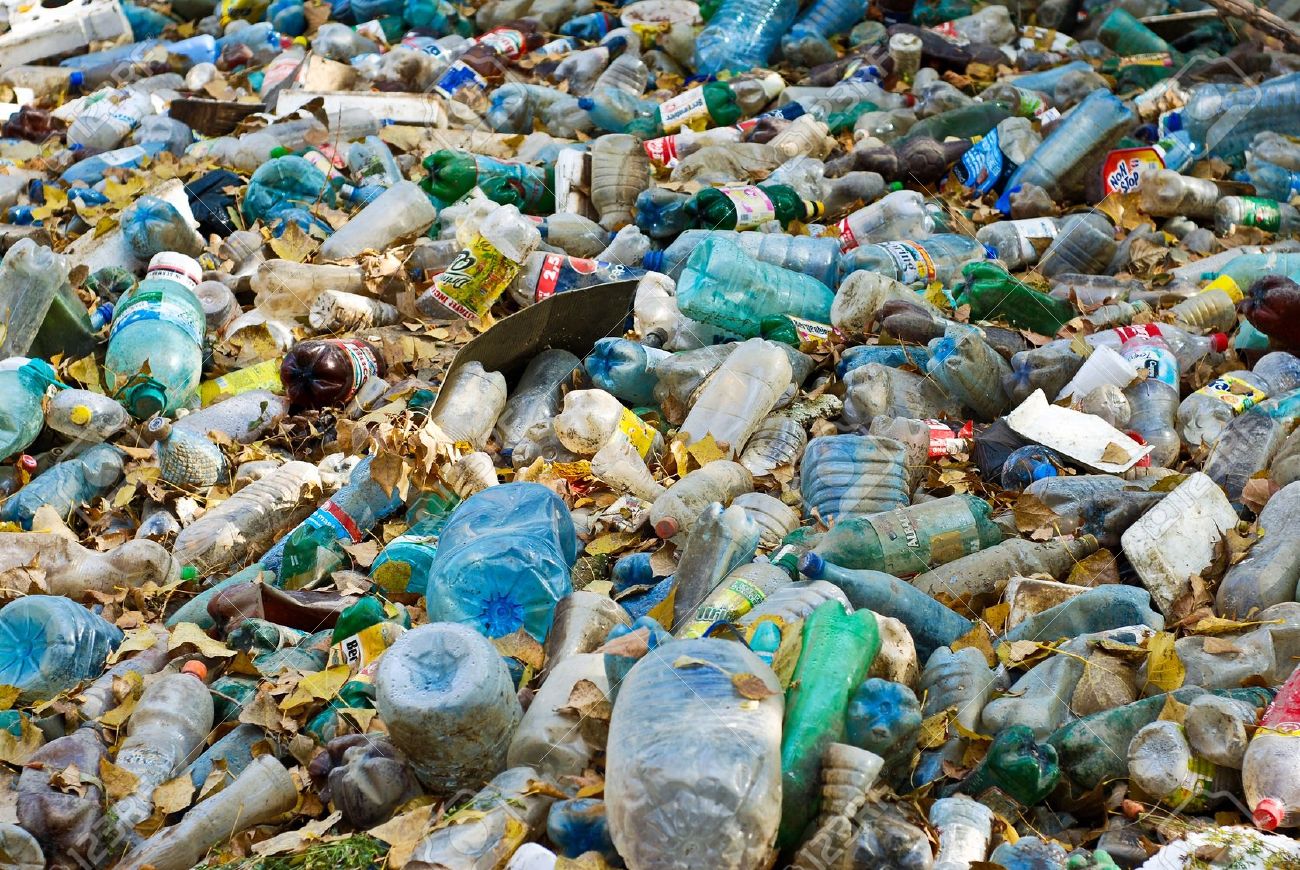The curse of plastic

Source: Google photo
When I was growing up in India, I was always asked to run errands for the family. I had to fall in line early in the morning to buy subsidized wheat, rice and sugar. I had to buy kerosene and I had to go to the central market every month to buy a long list of things that the family needed. I had to even fall in line at 4 am in the coal yard to buy 20 kgs of coal that was allowed per family per week due to an artificial coal shortage.
But what I remembered most was that I had to gather all the cloth bags I could find in the house before I went to buy things. These bags were made of old pants and discarded clothes so came in very handy for marketing.
In every shop I went to, I was given the goods in a paper bag made of newspapers. In fact the old newspapers were never thrown away by my father but a fellow came every month to buy them at the rate of 1 or 2 Rupees a kilo who then resold them to the people who made paper bags out of them so the paper was recycled this way. This practice is still in vogue in India and gives employment to many people who make paper bags for the shops.
Someone also came to buy used clothes and shoes or glass or metal and my Ma got ceramic jars for her pickles in return so everything was recycled although I still do not know what they did with used clothes or shoes. I did not know the scale of this recycling nationwide until much later and was very impressed. If someone could make money out of recycling, it was done.
The municipal trucks came frequently to collect the household garbage which consisted mainly of vegetable peals and such and dumped the truck loads of garbage in low lying areas of the city and slowly filled them up. It served the purpose of garbage disposal and the land was reclaimed that became a valuable property where new residential houses came up later. If you go there now, you will never realize that 50 years ago this was a low land full of water and a breeding ground of mosquitos. Now there are beautiful buildings and paved roads with neon street lights. My town went through this magic transformation over a period of time using garbage as filler.
With this background in mind let us fast forward to the present day and see the proliferation of plastic in a way beyond belief although India has taken drastic steps to curb this menace of plastic and banned their use outright in many states.
When I lived in Sudan, I was shocked to see the barbed wire fences for miles stuck with plastic that flew in the wind everywhere. There was plastic in the streets, in the fences, in the garbage piles, in the farms and even in places where you should not expect to find.
As soon as you arrive at the market to buy a few things, you will be assailed by the Kish boys who hang around with stacks of plastic bags in their hand and want you to buy them. Plastic is called Kish in Arabic.
I saw no one going to the market with a bag in hand like we used to so they buy the plastic bags from the kish boys and throw it away as soon as they get home. It then proliferates and covers the land like a scourge. What is worse is it finds its way to the river or water source and pollutes them as well.
The problem has gotten so out of hand that now plastic materials float in the vast oceans and cover the size of Texas in the Pacific creating enormous problems for the marine life.
The marine birds like albatross swallow bits of plastic and die in large numbers. The sea mammals get tangled in plastic and nylon mesh and die. There is no end in sight to this massive pollution and there is no international effort to clean up the oceans. On the contrary, more countries are dumping their plastic wastes surreptitiously into the water or dump them in a third country where corrupt officials take bribe to do so.
When I go to the supermarket here, what I see is shocking. I see every bit of vegetable wrapped in cellophane that we have to then unwrap and throw away so it all ends up in a land fill somewhere. The local municipal office has banned the use of plastic bags in the market so now the supermarkets sell cloth bags or bags made of non-plastic material that people are obliged to buy because they go shopping without bags. I suspect that this habit is more cultural than anything else because surely they all have tons of bags at home but always go to market without them out of habit. I should say bad habit.
My wife is an exception because she hates plastic and always goes to the market with lots of bags and is very organized. She even gives her bags to someone who is in need but people have bad habits and they seldom learn.
I saw the same bad habit in Australia where people go shopping without bags and are forced to buy the bags from the supermarket at two or three Aussie dollars apiece and accumulate them at home .Still they forget to bring them the next time around.
We all know how serious the matter is when we see a landfill somewhere where the trucks unload their contents daily or even hourly. There you will find poor people including bare feet children scavenging in the garbage piles for anything they can collect and sell for recycling. Often you hear of tragic cases where the mountain of garbage collapses on them burying them alive and yet the pile grows.
We generate all this garbage nationwide and worldwide that we do not care about because the garbage truck comes to take it all away. We do not care where it goes and what people do with it. We do not care if it all ends up in the ocean as long as it is taken away and out of our sight.
Now I appreciate how in India they recycle garbage and plastic and use it to fill up low lying swampy areas and build houses there later. One fellow who recycles metals recovered from the garbage dump in Mumbai and turns them into shiny pots and pans says he makes about 30000 Rupees every month for his effort and he only works part time.
But in Western countries like the United States, people throw away a mind boggling amount of things including plastic that end up in the garbage dump somewhere. Plastic and paper products comprise a big part of what they throw away but glass ,metal and even electronic trash is thrown away not to mention toxic waste that come out of thousands of hospitals.

Source : Google photo of tiles made of recycled plastic in Poland
One fellow in Poland collects the plastic for free because it is garbage that nobody wants and melts it down to a thick paste into which he adds color and injects this colored molten plastic paste into molds that turn out beautiful roof tiles. He jumps up and down on the roof to show how strong the tiles are and how beautiful they look. He is now exporting his tiles to other EU countries and makes tons of money.
So if others follow his example then a very large volume of this unwanted plastic can be reused this way but initially they will need financial assistance from the government to set up their factories and buy the machines needed to make such products.
Poor people know how to scavenge through the garbage pile and pick up a few things they can recycle at a terrible cost to their health but do not have the money or resources like that Polish fellow to set up a tile factory. This is where the governments can play a crucial role. They can set up schemes where they help new entrepreneurs set up plastic recycling plants that can generate employment and income.
Secondly, they must enact laws that prohibit the use of plastic cellophane wrappers in the supermarket or anywhere. If the source of the garbage is stopped then it can go a long way to solve the problem.
I know that in some countries like Iceland, they generate power by burning the plastic but that too has its environmental cost because the burned plastic generates toxic fumes.
Now an Italian scientist has discovered a plastic eating worm that she hopes to extract the plastic degenerating enzyme from and perhaps someday put it to commercial use at a large scale but it is still in the laboratory phase and will take time to make it a success if at all.
In the meantime the scientists need to work on developing self-destructing or degenerating plastic that will crumble into harmless dust after a short time but that is in the future. Meanwhile what to do with the trillions of tons of plastic garbage everywhere? Soon they will run out of landfills because no one wants a garbage dump near their city or town but keep on producing garbage that has to go somewhere.
The only solution as I see it is in stopping making the garbage in the first place. You can do it in several ways.

- Stop buying plastic bags and bring your own cloth bag for shopping that can be reused hundreds of times.
- Stop buying canned products that are made with harmful preservatives that are a health hazard. This will reduce the metal cans in the dump.
- Segregate your garbage into recyclable bins. Glass, plastic, metal, paper, styrofoam can all be recycled so bring them to the processing centers regularly.
- Make a pit where all your vegetable peels and other organic matters can be thrown into to make wonderful compost that you can use in your garden.
- Donate your old clothes, shoes, books, magazines etc. to poor people. Someone will collect them and send them to the children in Somalia or Ethiopia where they will value them.
- Teach your children not to be wasteful and to be mindful of the environment. If we cannot reduce the pollution then at least we should not add to it.
- Make an organized effort to gather environment conscious people like children and clean up the streams and parks in your neighborhood by collecting garbage especially plastic and metal cans and help maintain cleanliness
- Follow the example of Wangari Maathai in Kenya who single handedly organized to plant hundreds of thousands of trees nationwide to make Kenya green again. She did it by asking the village women to collect seeds from the forest and raise their nurseries in every village and plant the trees later. You too can plant trees that will one day grow into lovely forest and clean up the air.
- People in Uttar Pradesh in India recently made into Guinness book of records by planting several million trees in one single day but for that to happen, one needs to plant seeds on a massive scale in nurseries and then organize thousands of people, transport them and the trees and give them tools to plants the trees with. This massive effort required government assistance but individually you too can do a lot like Wangari Maathai. She received Nobel Prize for her effort of planting trees.
- Say No to plastic in every country and find a suitable alternative.
- Stop buying bottled water because it adds to the problem of the plastic bottles thrown away. Clean tap water in most countries is quite drinkable unless you live in Flint. One fellow has built a lovely home using large plastic bottles filled with colored water and built the walls with it. The sunlight comes in through the colored water and creates dazzling rainbow colors inside the house in the United States. You too can be so creative if you just try.
Note : My blogs are also available in French, Spanish, German and Japanese languages at the following links :
tumblr posts
Blogs in French
Blogs in Spanish
Blogs in German
Blogs in Japanese
Anil's biography in Japanese
Anil's biography in French.
Anil's biography in English.
Anil's biography in Spanish.
Anil's biography in German
No comments:
Post a Comment